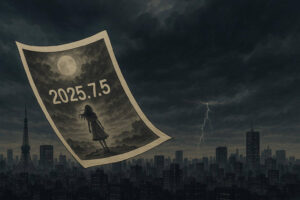Last Updated on 2025年12月29日 by IAJ
Japan is one of the most earthquake-prone countries in the world, and while Tokyo is a modern and safe city, earthquakes can still happen. If you’re a foreign traveler visiting Tokyo and you experience an earthquake, it’s important to stay calm and know how to react.
In this guide, we’ll explain what to do before, during, and after an earthquake—and how you can be prepared while traveling in Japan.
📝 Curious about the recent July 5 earthquake prediction rumor?
Read our article: Did a Manga Predict Japan’s July 5 Earthquake? What Really Happened
🧳 1. Be Prepared Before It Happens
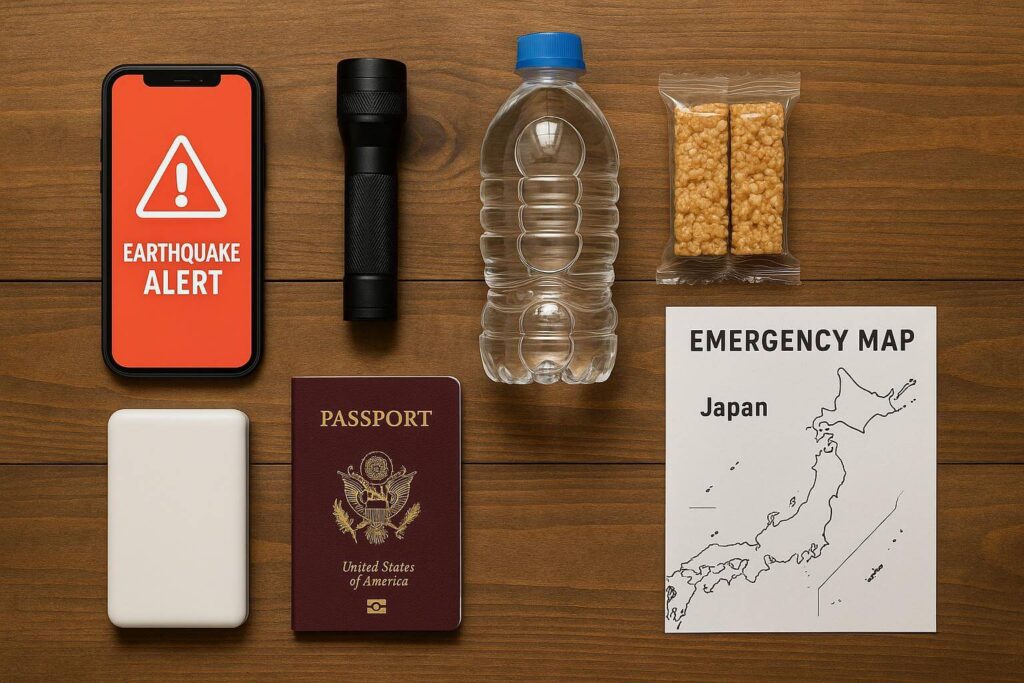
Although major earthquakes are rare, it’s best to be ready—just in case.
Here’s what you can do as a tourist:
- Download apps like Yurekuru Call or NHK World-Japan. These send real-time quake alerts and information in English.
- Know your hotel’s evacuation route and where to gather in an emergency.
- Keep a small emergency kit with items like bottled water, a flashlight, snacks, and a portable charger.
- Enable roaming and mobile data so you can receive emergency alerts (called “J-Alert”).
✨ Pro Tip: Convenience stores in Japan often stay open and stocked even after disasters, making them a reliable resource for basic needs.
😨 2. What to Do During an Earthquake
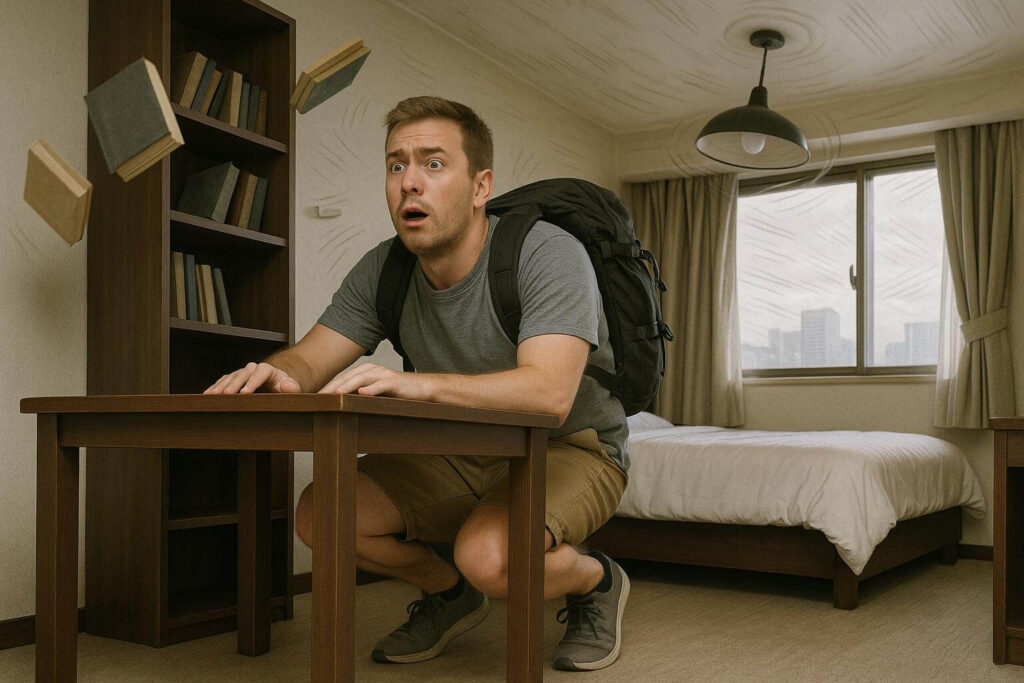
If you feel strong shaking:
- Stay calm. Don’t run outside.
- If indoors: Get under a sturdy table or protect your head with a cushion or bag. Stay away from windows and bookshelves.
- If outdoors: Move away from buildings, power lines, or anything that may fall.
- If on a train: Follow the announcements. Trains in Japan automatically stop during quakes. Remain seated and wait for instructions.
🗾 Tokyo buildings are built to withstand earthquakes. It may feel scary, but the structures are designed to keep you safe.
📲 3. After the Earthquake
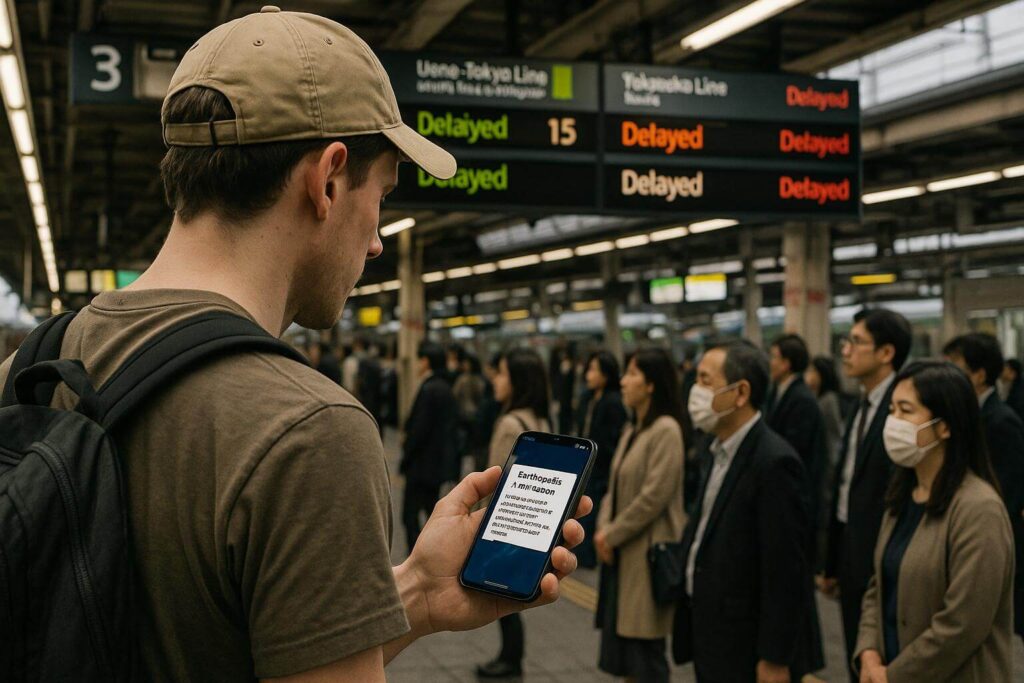
Once the shaking stops:
- Check for updates via official sources like NHK, Japan Meteorological Agency (JMA), or Tokyo Metropolitan Government social media (some updates are in English).
- Expect aftershocks—these are smaller quakes that follow the main one.
- Avoid elevators in case of power outages.
- Contact your embassy if you lose your passport or need help.
- Transportation may be delayed—check train schedules on apps like Google Maps or Japan Travel by NAVITIME.
🧠 Wondering why these rumors spread so quickly? Learn more in our article:
How the July 5 Earthquake Rumor Affected Japan and Tourists
🛍 4. Earthquake Safety Gear to Consider (Optional but Useful)
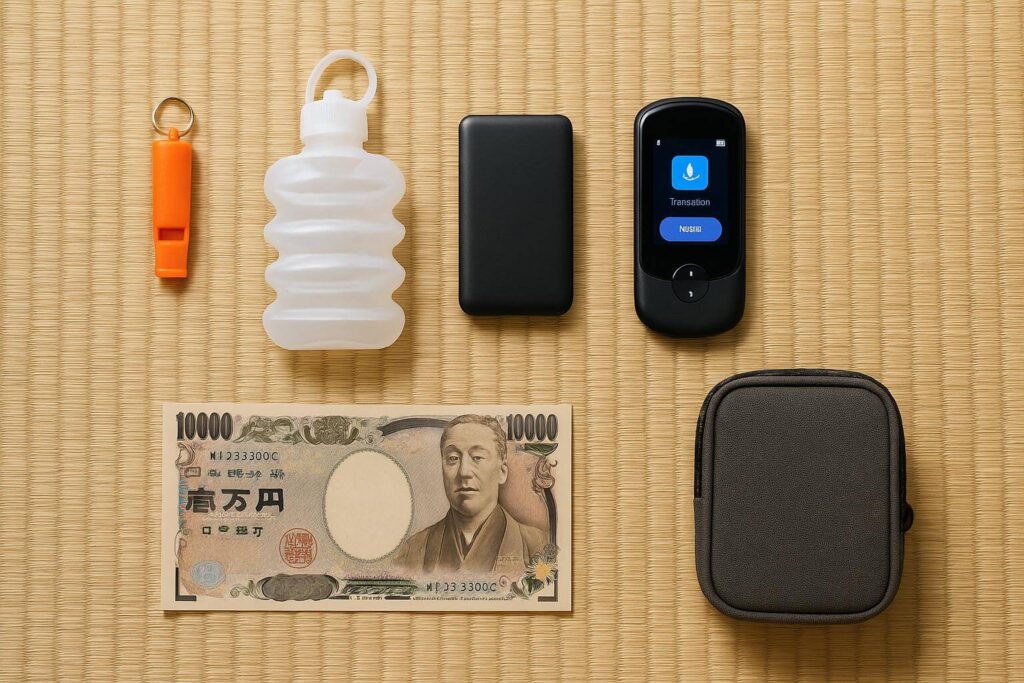
While not mandatory, these items are useful if you’re in Japan for a longer stay:
- Portable battery charger
- Whistle or emergency alarm
- Pocket translator (or phone app)
- Cash — ATMs may be down temporarily
- Foldable water bottle for easy storage
💡Planning to stay in Tokyo longer? Check out our article:
Top 5 Cheapest Areas to Live in Tokyo (2025 Edition)
🌸 Final Thoughts: Don’t Panic, Just Be Aware
Japan’s infrastructure is among the most earthquake-resilient in the world. While the idea of experiencing an earthquake can be frightening, most are minor and cause no serious damage. By staying calm, following safety guidelines, and preparing a little in advance, you’ll be able to handle the situation safely.
✅ Looking for more safety tips for traveling in Japan? Bookmark our blog: IAJ ~ Information About Japan ~


